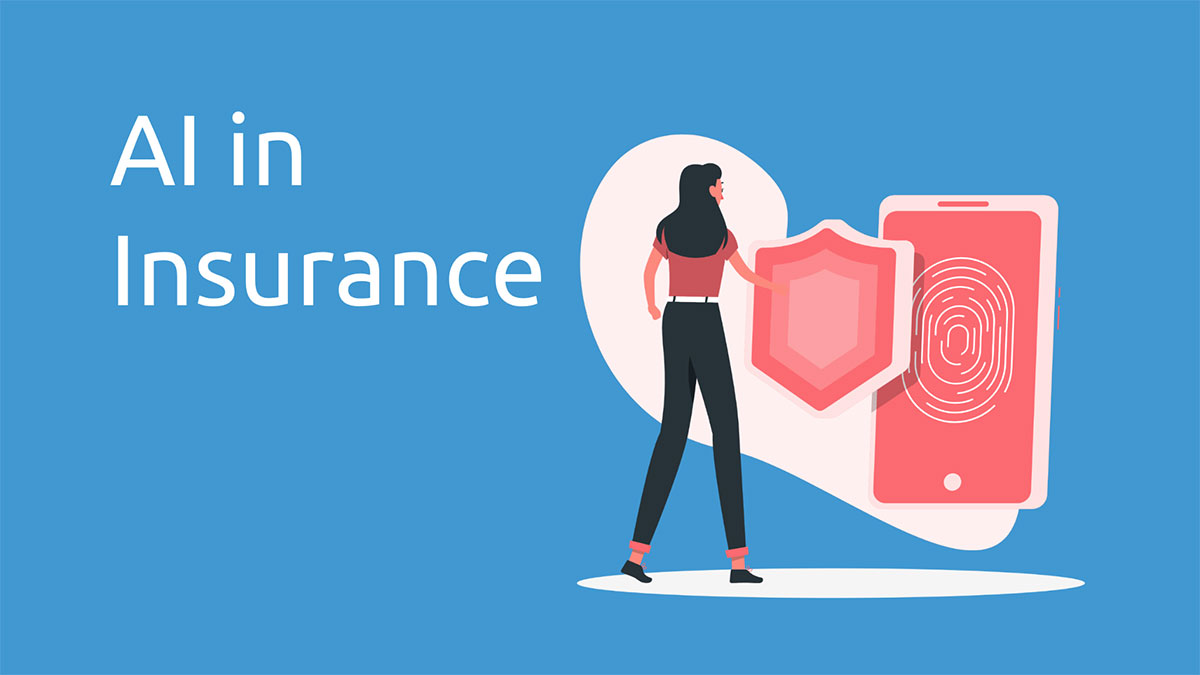How AI Is Radically Changing the Insurance Industry
8th April, 2023

The insurance industry is in the midst of a digital revolution, and artificial intelligence (AI) is at the forefront of this transformation. AI is used to streamline insurance processes, improve customer experience, and drive better business outcomes. In recent years, the insurance industry has experienced significant disruptions due to technological advances, and AI in health insurance has emerged as a critical driver of these changes. With AI-powered tools, insurers can gain insights into customer behavior, identify risks more accurately, and improve decision-making.
We will examine how AI in health insurance transforms underwriting, claims processing, and customer experience and highlight the benefits AI can bring to insurers. By the end of this blog, readers will better understand how AI is shaping the future of insurance and how they can leverage this technology to drive business success.
How AI is Improving Claims Processing

Insurance companies are there to handle claims and help customers pay them, but it can be challenging to evaluate claims. Agents must review several policies and look at every little detail to determine how much the consumer will receive for their claim. Artificial Intelligence in claim management can help with a task that could otherwise be tedious.
Technologies that use machine learning can quickly identify the elements of a claim and forecast the likely costs related to it. They might examine the information from sensors, cameras, and past insurance plans. An insurer can then review the AI's findings to validate and resolve claims. Both the customer and the insurer benefit from the outcome.
Role of AI in Enhancing Customer Experience
AI in health industry is enhancing customer experience in three ways:
- AI-powered tools can help insurers personalize their services to better meet customer needs by analyzing vast amounts of customer data and using that information to develop targeted and personalized insurance products. AI in health insurance can help insurers to identify customer preferences, behavior patterns, and risk factors and use this information to offer customized policies, pricing, and services. This level of personalization can improve customer satisfaction and loyalty, ultimately resulting in increased business revenue.
- Companies increasingly use chatbots and virtual assistants to improve customer engagement and communication. These AI-powered tools can provide customers instant responses to their queries and concerns without human interaction. Chatbots can handle routine customer requests, such as checking an account balance, answering frequently asked questions, and providing policy information. This frees human customer service representatives to focus on more complex issues and can help reduce customer wait times. Virtual assistants can also provide personalized recommendations and offers to customers based on their preferences and behaviors.
- AI-powered customer service can benefit customers and businesses by improving response times and reducing wait times. AI can help identify and prioritize customer inquiries and provide faster and more accurate responses. AI-powered chatbots can also provide 24/7 support, meaning customers can receive assistance even outside normal business hours. By automating routine tasks, such as processing claims and handling simple requests, AI can free up human customer service representatives to focus on more complex issues and provide a higher level of service. This can increase customer satisfaction and loyalty, resulting in improved business performance.
How Is AI Transforming Insurance Underwriting?

AI is transforming the insurance industry in many ways, and underwriting is one area significantly impacted by this technology. AI-powered underwriting is helping insurers improve risk assessment and pricing, resulting in more accurate insurance policies and better business outcomes.
-
Improving Risk Assessment and Pricing
Traditionally, underwriting has been a time-consuming and complex process that involves collecting and analyzing large amounts of data to determine risk and set pricing. AI-powered underwriting is changing that by automating many of the tasks involved in this process. With AI in health insurance industry, insurers can collect and analyze data more efficiently and gain insights into the risk that would not be possible with traditional methods.
For instance, AI-powered underwriting can help insurers assess a policyholder's risk by analyzing various data points, such as credit scores, driving records, and medical history. These insights can help insurers set more accurate premiums and reduce the risk of claims.
-
Use of Machine Learning Algorithms
AI-powered underwriting involves using machine learning algorithms to analyze data from various sources, including social media, to gain insights into customer behavior and health risks. Insurers can gain insights into customer behavior, preferences, and risk factors by analyzing social media posts and other online activities. For instance, if a customer frequently posts pictures of themselves smoking, an insurer can use that information to set a higher premium for that customer.
Artificial Intelligence in health insurance can also help insurers detect potential health risks by analyzing data from wearable devices like fitness trackers. Insurers can gain insights into their health and identify potential risks by collecting data on a customer's heart rate, sleep patterns, and other metrics.
AI-powered underwriting offers many benefits to insurers, including reducing errors, improving speed, and increasing accuracy. By automating many of the tasks involved in underwriting, insurers can reduce the risk of errors and speed up the process. AI in healthcare insurance can also help insurers improve the accuracy of risk assessment and pricing, resulting in more accurate policies and better business outcomes.
Conclusion
The rapid evolution of technology is transforming the insurance industry, and AI is at the forefront of this change. AI-powered tools significantly improve insurance processes, enhance customer experience, and drive better business outcomes. With eOxegen, insurers can streamline their operations, gain insights into customer behavior, identify risks more accurately, and ultimately make better decisions. By automating underwriting, improving claims processing, and personalizing services, insurers can reduce errors, improve speed, and increase accuracy, resulting in more accurate policies and better business outcomes. As AI continues to shape the future of insurance, eOxegen is committed to providing cutting-edge solutions to help insurers stay ahead of the curve and drive business success.
Recent Articles
- How do Big Insurers Engage with the New-Age InsurTech Companies?
- Insurance Management System Integration: Maximizing Efficiency and Performance
- Will Blockchain Technology Reshape the Insurance Market?
- The Future of Health Insurance: Predictive Analytics and AI
- Buy or Build Insurance Software? A Game-Changing Question in Insurance Industry